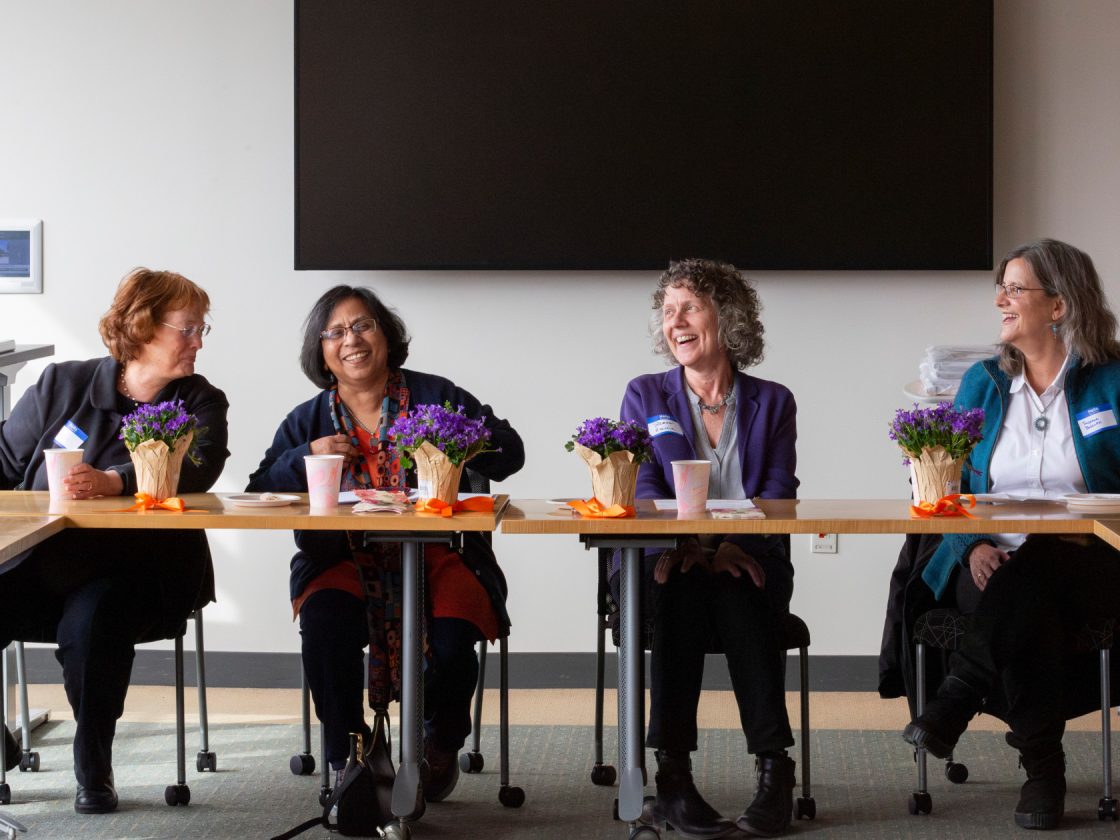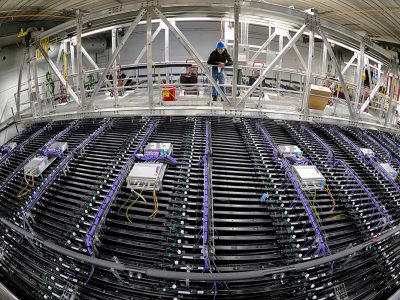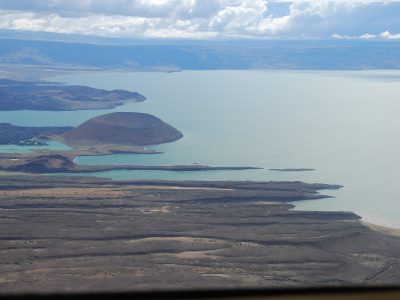Four women STEM faculty members, all longtime members of the University community, have recently retired with emerita status, but they leave behind a significant legacy—as valuable researchers, dedicated teachers and inspiring mentors to the next generation.
Suzanne Baldwin, Shobha Bhatia, Eleanor Maine and Karin Ruhlandt are renowned in their respective science, technology, engineering and mathematics (STEM) fields. They were key leaders in establishing the University’s Women in Science and Engineering (WiSE) initiative and growing it into the strong support network it is today.
In the spring, they were celebrated for their distinguished careers during a WiSE reception and panel discussion.
“These four women are an inspiration to us all,” says Kate Lewis, Laura J. and L. Douglas Meredith Professor of Teaching Excellence and professor of biology in the College of Arts and Sciences. “They have had, and are continuing to have, a tremendous impact on their respective fields and STEM in general, here at Syracuse University and also internationally—through their research, their mentoring of students and colleagues and their work for diversity, equity and inclusion.”
Below, the four faculty members reflect on their careers and the importance of mentoring younger faculty members to help them reach their fullest potential.
Suzanne Baldwin, Thonis Family Professor Emerita: Thermochronology and Tectonics, Department of Earth Sciences, College of Arts and Sciences
Baldwin retired in January after 24 years as a faculty member. The roots of her career in STEM were planted during her college years, when she had to make a decision whether to pursue a dance major or science major.
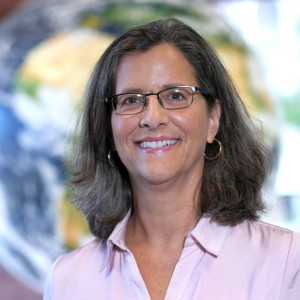
“They are certainly very different fields,” Baldwin says. “I always loved science, so I took a bunch of science courses—physics, math, chemistry and biology—and didn’t really settle on any one science. I ended up taking a geology course and then I was hooked.”
Baldwin loved field trips and being outdoors, working to find out how the Earth evolved. “It was really my curiosity and passion that led me down this path,” she says. “I’ve never looked back.” She earned an M.Sc. degree and a Ph.D. at the State University of New York University at Albany.
Her research has focused on how the Earth’s plate boundaries evolve over time, in particular around the Pacific Rim. That research has led to a number of discoveries in Papua New Guinea, for example. Baldwin has conducted field work globally, including in Antarctica. “The Earth is my lab,” she says.
Along with her research group, Baldwin built the internationally recognized Syracuse University Noble Gas Isotopic Research Laboratory (SUNGIRL), which she directed for 23 years. Baldwin and her team studied noble gases in minerals from Earth and lunar samples to reveal their thermal histories. She is proud of the research community she built, providing opportunities for undergraduate and graduate students, postdocs, faculty and visiting researchers.
She is also proud of the community that has been built through WiSE, especially her role in leading the Faculty Peer Mentoring Committee. Her desire to help and mentor other faculty comes from challenges she experienced throughout her career.
There were times when, because of her responsibilities, Baldwin was not able to be as active in WiSE as she wanted. But she always made sure that her students, post docs and lab manager, attended and benefited from WiSE programs. “We’ve seen over the years that many of the programs started in WiSE have expanded to help the entire University community,” Baldwin says. “So that’s been very gratifying.”
Baldwin was elected a fellow of the Geological Society of America in 2005 and was the inaugural Marie Tharp Fellow at the Earth Institute of Columbia University in 2006. She was awarded Syracuse University’s Chancellor’s Citation in 2010. She was appointed the inaugural Susan G. and Michael T. Thonis Professor of Earth Sciences in 2014.
In retirement, she continues to conduct research and mentor students, and is returning to writing projects. In June 2025, she will co-convene an international conference on her research specialty (eclogites) in Sonoma, California. It will be the first time the International Eclogite Conference will be hosted in the United States.
“Basically, I’m doing everything that brings me joy,” she says. “I’m proud of so many things that I’ve accomplished. I’m not done yet.”
Shobha Bhatia, professor emerita of civil and environmental engineering, College of Engineering and Computer Science
Bhatia, who retires in August, has been a member of the faculty for 42 years. As a child, she had a natural affinity for math and science. When it came time to choose a path for college, she decided she did not want to follow in the footsteps of her older sister, who was in medical school.
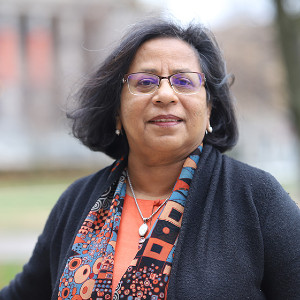
“I made the decision to carve my own path,” she says, and she chose engineering. Her uncle was a civil engineer and took her to his work sites. “I like working with soil; I thought this is a great profession. And so I chose civil engineering, following his path,” she says.
After completing undergraduate and master’s degree studies in India, Bhatia worked for two years at an earthquake engineering research institute on projects with a nuclear power plant and an oil refinery. “At the time, I didn’t realize how important those projects were and the kind of training and experience I got,” she says.
Bhatia came to Canada in the late 1970s as a Commonwealth Scholar at the University of British Columbia. She worked in a lab with six research scientists from Japan; she was the only student. Instead of being intimidated, she formed good, collaborative working relationships with the others in the lab. “They were wonderful mentors,” she says.
“Since joining Syracuse, I have a chance to work on many exciting projects with my students and with colleagues, and I am very proud of what we have been able to produce,” she says. Bhatia received a Chancellor’s Citation for Faculty Excellence and Scholarly Distinction and designation as a Laura J. and L. Douglas Meredith Professor of Teaching Excellence, and this past April, received the Chancellor’s Citation Lifetime Achievement Award during the One University Celebration.
There have been challenging times for Bhatia early in her academic career, particularly in being the first female full professor in the College of Engineering and Computer Science. “I didn’t know who to talk to, who to really go to for advice, so it was a very isolating experience,” she says. “I now have wonderful colleagues here in engineering and in the STEM disciplines across campus.”
That was the impetus to start WiSE in 1999. At the time, Bhatia was department chair of civil and environmental engineering. She worked with Cathryn Newton, dean emerita of the College of Arts and Sciences and then professor and chair of Earth sciences, to write the grant proposal for funding and get WiSE off the ground.
“Now, after 25 years, WiSE is a vibrant community of extraordinary faculty, post-docs, graduate and undergraduate students. Not only have we maintained that community, but it has grown,” she says. “It’s ever evolving because there are so many people involved. It remains really vibrant.”
As she reflects on her career, she is proud of what she helped to build. “I feel this is my university. I’m not just coming to work, I’m contributing to something that is mine. And I think if you create that kind of network of students and colleagues around you, work becomes a pleasure,” she says.
While Bhatia will greatly miss her students and colleagues, she says it’s time to move on to the next phase of her life. “It has been a wonderful experience, but I think it is time to give the baton to other people who can run with it. I need to move on to the next phase of my life.”
In retirement, Bhatia and her husband, Tej Bhatia, who has also just retired from his faculty position in the College of Arts and Sciences, plan to continue working on projects they have underway. She will be presenting the first of four keynote lectures at Geotechnical Frontiers in March 2025 and will start her work as a consultant for a World Bank-funded project with the Indian Institute of Science, Bengaluru, India, in 2025.
Eleanor Maine, professor emerita of biology, College of Arts and Sciences
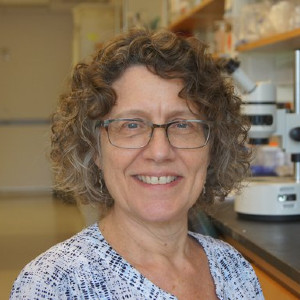
Maine retired in May after a 34-year career on the faculty. As a child, she was drawn to the natural world, and both of her parents had science backgrounds. She found her passion in her introductory biology class in college. “The first thing we studied was animal development, and I just loved it,” Maine says. She didn’t start her college journey aiming to be a professor, but that is where her path led her after earning a Ph.D. at Princeton and postdoctoral fellowships at Princeton and the University of Wisconsin-Madison.
Her research interests include genetic regulation of development, cell-signaling, germline development and RNA silencing, and the Maine lab’s research team studied how cells and tissues form during animal development. Beyond the successes realized in her lab and the publications she got out, one of her greatest joys has been working with students, “just seeing them blossom,” she says.
One of her greatest challenges was the social side of being a professor. “I had zero training in teaching, so I really had to become a more outgoing person,” she says. It was all about a delicate balance of nurturing students who felt that they could do everything themselves to those who needed constant reassurance, and everyone in between. “That was a big challenge,” Maine says. “Most of the time it worked out, and I am proud of that.” Maine was the 2022 recipient of the William Wasserstrom Prize for the Teaching of Graduate Students.
“I think for me, the important thing is building community,” Maine says. “I’d been here many years when WiSE was founded, but still it was so helpful to meet women scientists in engineering and other departments in arts and sciences.”
“I was also very much wanting to foster an easier, more welcoming atmosphere for new faculty in general,” Maine says. “It’s helpful to talk with other people about these things, like difficult conversations with people.”
For many years, Maine was one of three women in the biology department. She says that over the years, she has seen silos come down. “I feel that there’s more acceptance of different research and teaching styles than when I came here,” Maine says. “And also more acceptance of ongoing outside obligations that some people have.” She has also witnessed more collaboration between departments and schools and colleges.
In retirement, Maine will continue to work on projects. Once a professor, always a professor.
Karin Ruhlandt, Distinguished Professor Emerita of Chemistry and Dean Emerita, College of Arts and Sciences
Ruhlandt was a member of the faculty for 31 years before retiring in May.
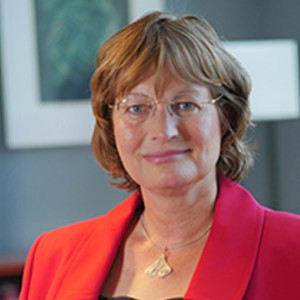
A native of Germany, Ruhlandt grew up being fascinated by nature. What she loved even more, though, was art history and literature. She found resistance from her father in pursuing that passion. “Even finishing high school, he said, ‘Why are you doing this? You’re going to get married anyway, why bother?’ Ruhlandt found support from her mother in pushing back. When it came time to enter university, her father relented somewhat—under the condition that Ruhlandt pursue a field that he felt would keep a roof over her head and fed. To him, that was not art history and literature.
“So I became a chemist, it was really that. I must admit that I struggled with it a lot,” she says. At the time, there were a few other fellow female students but no role models in the professoriate. All courses were taught by men.
After earning a Dr. rer. nat. (the Ph.D. equivalent) in chemistry from Philips University in Marburg, Germany, she came to the United States to pursue postdoctoral work at the University of California, Davis. It was in her research that Ruhlandt began to truly find her passion for chemistry. She found a supportive advisor in California who gave her the independence within his lab to pursue the research she wanted to do. That freedom also had a downside. While she and her advisor were incredibly productive, publishing more than 30 papers together, she did the experimental work and data collection. “When I became a faculty member I regretted it, because there were certain aspects of the job I never learned. I had never written in my life a paper before,” she says.
Ruhlandt’s research specialty is the chemistry of highly reactive metals and their applications in such areas as computer memory and bone therapeutics. In 2009, she was appointed Distinguished Professor—the only female on campus to receive such an honor in the sciences—and chair of the Department of Chemistry, the latter of which she held until 2014. Named dean of the College of Arts and Sciences in 2015, Ruhlandt led A&S until 2022.
She is proud of the work she did as dean to enhance the student experience in A&S. Her accomplishments that are evident today in the retention of international students and students winning nationally competitive scholarships and awards, as well as gains in research, funding and admissions. Ruhlandt also laid the groundwork for a program in Madrid to allow science students to study abroad.
When she started at the University in 1993 as an assistant professor, she was the only woman faculty member in the department for eight years.
As with the other professors, Ruhlandt’s work as a co-founder of WiSE has been very important to her. “I find it incredibly important to show young scientists what is possible despite the obstacles. That is what I’m really passionate about,” she says.
Mentorship, she says, is also about showing young faculty members how to navigate through their careers. “That, I think, is what really is ultimately driving my passion for WiSE, and also making sure that they don’t feel isolated. … That there is a support network and that they see it’s not just them doing what they’re doing and that there are others who share their values and their passions,” Ruhlandt says.
Ruhlandt is proud that the support network that she and her colleagues built 25 years ago is still strong today. “I’m incredibly proud of the women we have hired over the last few years. They are incredibly successful in bringing in funding and writing really high-profile research publications,” she says. “The caliber of the papers produced is astonishing. We have hired incredibly good women, and they need to be nurtured and supported.”
Ruhlandt began a new position as vice principal, academic and dean at the University of Toronto at Scarborough on July 1. In her new role she will oversee the building of a medical school on campus.
